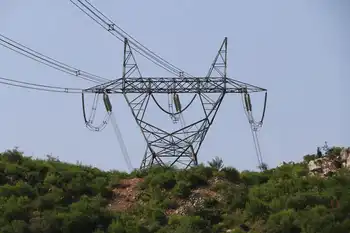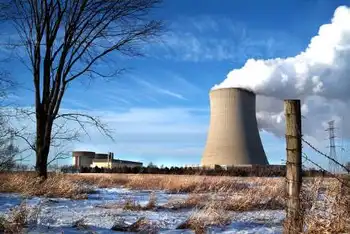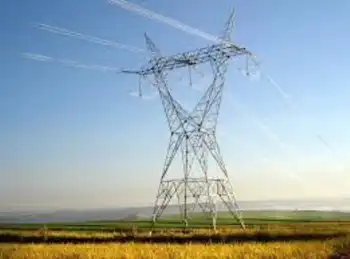Nigerians still waiting on 6,000 MW promise
AKWA IBOM, NIGERIA - Nigerian Minister of Power, Dr. Lanre Babalola, still believes fervently that his ministry has not failed Nigerians on the promise to deliver 6,000 MW of electricity at the end of 2009.
Babalola had told journalists during facility visit of Ibo Power plant, in Akwa Ibom State last year that the country "has achieved 5,600 MW capacity in terms of machines and equipment on ground," maintaining however that the electricity generation capacity of Nigeria is about 3,600 MW.
But Vice President Goodluck Jonathan spilled the beans during a New Year message when he admitted the government's "less than expected performance in the area of improved electricity."
Assuring Nigerians that efforts would be redoubled towards solving the problems of power in 2010 Jonathan said: "While I am happy today to report that we have achieved some substantial measure of success, I regret to mention that for a number of unforeseen and unavoidable reasons, this target could not be met. Millions of Nigerians are therefore still without power. For this, I render on behalf of government very sincere regrets."
Some heads may however roll over the Federal Government's failure to meet its last December target of 6,000 MW of electricity generation. Expectedly, palpable fear now rules in the power sector.
According to sector officials, power supply is currently fluctuating between 3,600 and 3,700 MW, a far cry from the 6,000 MW target set by President Umaru Yar'Adua for the end of last year.
The Daily Independent had, last year, stated in an analysis that it would take a miracle for the target to be met considering the prevailing problems among which was gas supply.
The paper reported that the government, which painted the whole country with promise of 6,000 MW dipped the hope when it budgeted a huge sum of money to purchase generators for Aso Rock, the seat of power.
The Yar'Adua-led executive had in the proposed 2010 Budget allocated N30 million for the maintenance of generators, N52 million for fueling of the generators and N100 million for the Uninterruptible Power Supply (UPS) units that would support 24-hour operation of the generators in the Aso Rock Villa.
The Government, in line with this said that it has no regret whatsoever over the N182 million proposed in the 2010 budget for the purchase and maintenance of generators in the Presidential Villa otherwise known as Aso Rock.
The government argued through the Finance Minister, Dr. Mansur Muhtar at the 2009 ministerial press briefing that although it was optimistic about the target of 6,000 MW, there was still the need for emergency power back-up.
"The 6,000 MW of electricity promised Nigerians by the President was really a milestone. We are even targeting 11,000 MW in 2011. There is a huge challenge even with the 6,000 MW. We don't have any regrets for the budget provision for generators for the State House in 2010," he said.
Findings have, in this line, revealed that a major restructuring was underway, following the failure of the current government officers in the power and energy sector to realize the target.
Though the nature of the restructuring is uncertain, it is feared that it might lead to a reposting of ministers and heads of key agencies in the sector to pave room for 'better performers', a Presidency source said.
All these are some of the items awaiting President Yar'Adua's approval.
An aide of the minister however told Saturday Independent in a telephone interview that efforts would be redoubled to ensure that Nigerians enjoy electricity.
"The minister has been saying it and we still believe it that the country as at the last count, has the capacity, in terms of available equipments to do 5,600 MW. What usually hinders the dream is gas availability and the ministry is working round the clock on this.
"The ministry of power has now partnered with the Ministry of Petroleum Resources, the Nigeria National Petroleum Corporation (NNPC) and the IOCs to get gas to power the plants. The challenge is surmountable," she declared.
The Federal Government had late last year, according to the minister's aide, "secured a $300 million (about N45 billion) credit facility from the International Development Association (IDA), an arm of the World Bank."
Aside from this, oil giant Shell Petroleum Development Company (SPDC) has declared that its electricity production on the Afam 6 has peaked 442 MW "all of which have been made available for onward supply to the national grid."
Project Manager, Engineer Ben Agbajogu, who stated this during a forum themed: 'Media Engagement on Afam Power Project,' denied any rancour between the company and the Power Holding Company of Nigeria (PHCN) on the distribution of electricity on Afam 6 power project.
Shell's Spokesman, Precious Okolobo, who was at the forum, maintained that the terms of agreement between the company is to generate electricity "through the Afam 6, and we are committed to this. The PHCN is in charge of distribution and the 442 MW, which we are generating now, goes to the national grid."
The company, according to him, generates 240 million standard cubic feet of gas per day from its Okoloma Gas Plant and Pipelines project, "and part of the success, which we have recorded on the project is that we have beaten the World Bank's emission standard."
The $300 million loan, with a zero-interest rate, is repayable for a period of 45 years.
The credit, which is being extended to Nigeria under the World Bank's Special Facility for Infrastructure Development and enjoys 10 years payment holiday, is to be spent on critical two infrastructure areas — electricity and gas supply.
The credit attracts a service charge of 0.75 per cent per annum on the actual amount drawn from the credit and a commitment charge of 0.5 per cent per annum on un-disbursed balance of the credit.
While about N30 billion ($200 million) of the fund is expected to be channeled to the improvement of power transmission and distribution infrastructure, the N15 billion ($100 million) balance is for the Partial Risk Guarantee for gas supply to power plants across the country.
Briefing State House correspondents after the weekly Federal Executive Council (FEC) meeting presided over by President Umaru Yar'Adua late last year at the Presidential Villa, Abuja, Dora Akunyili, Minister of information and communications, joined by Lanre Babalola, minister of power; Ikra Bilbis, minister of state for information and communications, and Fidelia Njeze, minister of state for agriculture and water resources, had said $200 million of the money would be devoted to the electricity and gas improvement project, while the remaining $100 million would serve as risk guarantee on the project.
"In line with the administration's desire to improve power generation in the country, and following a memo on the above subject matter by the minister of finance, council considered and ratified Mr. President's anticipatory approval to obtain the IDA credit in the sum of $200 million for the proposed Nigeria electricity and gas improvement project and $100 million for partial risk guarantee," Akunyili said.
She had noted further that the council also approved that the minister of finance should execute the financing agreement.
The minister stated that the credit "will be on-lent to PHCN on the same terms and conditions offered by the IDA to the Federal Government," stressing that "this credit is to be extended to Nigeria under the World Bank's special facility for infrastructure development."
She said the objectives of the project "are to improve availability and reliability of gas supply for power generation in public sector power plants and enhance PHCN's power generation capacity."
The minister stated that the money would be "utilized for funding of critical investments in the power sector, particularly to strengthen electricity transmission and distribution. This facility will also assist in the reform programs in the power sector; provision of technical assistance and knowledge transfer."
The council also gave approval for the revision of the payment terms on the contract for the complete overhaul and commissioning of the intake band screen system at Egbin Electric Power Plant from the initial cost of N1,025,684,024.06 to N168,372,802.99 in addition to £3,426,718.78 (N857 million). The contract has a completion period of eight months.
Akunyili explained that the approval was in line with government's desire to ensure the provision of stable electricity in the country.
The council, according to Akunyili, also awarded contracts for the complete overhaul and commissioning of intake band screen system at the Egbin Power Plant in Lagos.
The Egbin Power Plant, according to the minister, is the most significant contributor of power to the national electric grid.
"The intake band screen for filtering raw water at the Egbin Power Plant is in a state of despair.
"The contract for the overhaul of the intake band screen was awarded in 2007 but progress on the contract was stalled due to conflicting terms of payment in the contract agreement and inadequate funding.
"Therefore, there is the need to restore the offshore content of the project with a view to facilitating an LC (Letters of Credit) in favour of offshore suppliers."
She said the council approved a reconstructing contract from a total sum of N1.02 million to N168.3m (£3.4 million). The project is to be completed within eight months.
Akunyili also announced the award of contracts for transmission sub-station projects at Oba and Nnewi, in Anambra State. They include the construction of two 60MV sub-station at Oba and two 132KV line bays at Oba and Nnewi for N860.4 million and (Euros 5.8 million). The project is to be completed within 18 months.
Meanwhile, Babalola needs to do more in 2010 as expectations rise for stable electricity supply in Nigeria.
Related News

NDP takes aim at approval of SaskPower 8 per cent rate hike
REGINA - The NDP Opposition is condemning the provincial government’s decision to approve the Saskatchewan Rate Review Panel’s recommendation to increase SaskPower’s rates for the first time since 2018.
The Crown electrical utility’s rates will increase four per cent this fall, and another four per cent in 2023. According to a government news release issued Thursday, the new rates will result in an average increase of approximately $5 on residential customers’ bills starting on Sept. 1, 2022, and an additional $5 on April 1, 2023.
“The decision to increase rates is not taken lightly and came after a thorough review by the…




